Electronic discovery involves locating, storing, organizing, and sending documents, videos, images, audio files, and any other electronic media that could be used to support a legal case by one party or another. You can use cloudHQ’s email parser to automate the electronic discovery process, making it far easier to get the evidence you need to build a winning case or mount a successful defense.
For instance, suppose a team member of the company you worked for got fired, and decided to launch a wrongful dismissal lawsuit against the company. You will likely need to turn over all emails with that employee to your company’s legal counsel. An easy way to do that, is simply:
- Create a Gmail label with all the emails that involved the ex-employee.
- Save the Gmail label emails to your Google Sheets using cloudHQ’s “Save email messages” wizard.
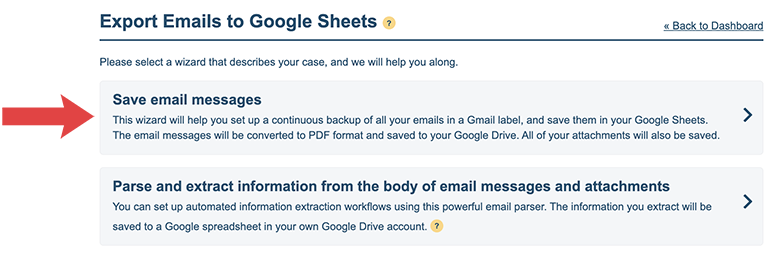
- Accept the default settings and start the export job by clicking on “Start Backup”.
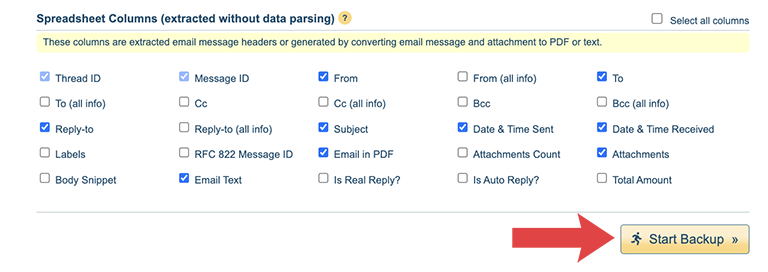
- You’ll be forwarded to your dashboard where you can access any of your export jobs at any time. Your dashboard will indicate that cloudHQ is preparing your Google Sheet until it is done exporting your emails.
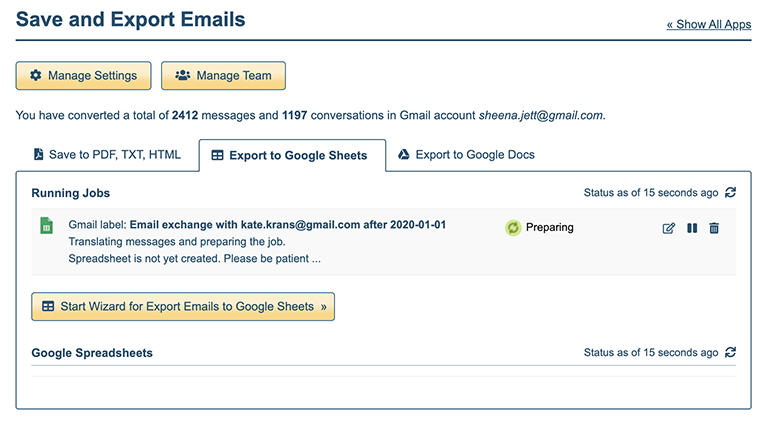
- When your email export job is done, you’ll get an email notification from cloudHQ. Click on the link in the email.
- For reference, there will be a cloudHQ icon on the top right hand side of your Gmail inbox whenever you install any Chrome extensions from cloudHQ. If you click on it, you’ll see a new menu. Click on “Go to dashboard,” where you will be able to see a list of all your email export jobs.
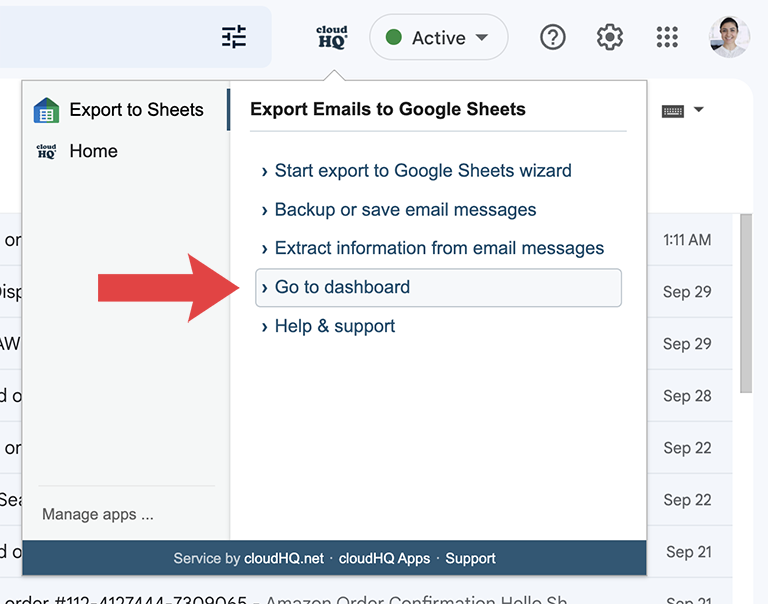
- For reference, there will be a cloudHQ icon on the top right hand side of your Gmail inbox whenever you install any Chrome extensions from cloudHQ. If you click on it, you’ll see a new menu. Click on “Go to dashboard,” where you will be able to see a list of all your email export jobs.
- Once the initial export job is complete, your spreadsheet will be available to you and it will look like this:
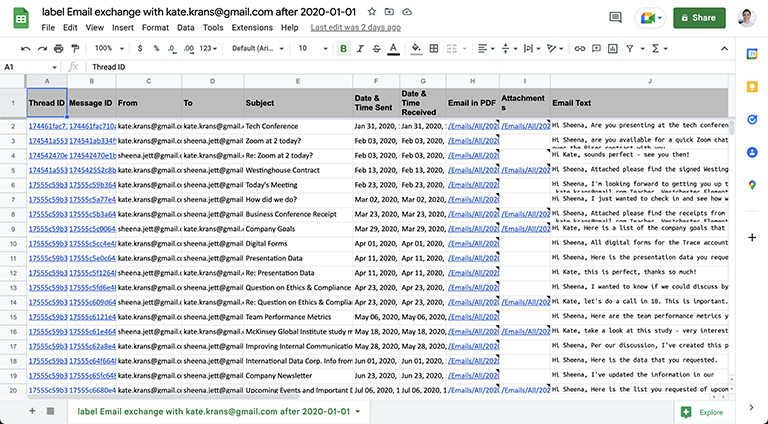
- Go through your spreadsheet and remove the emails that might not belong there. The beauty of Google Sheets is that you can easily share your Sheet with other people. We encourage you to share the Google Sheet with your company’s legal counsel, or perhaps your boss. They can advise which emails don’t belong in the spreadsheet if you’re unsure.
- If there are other emails to include in the spreadsheet, simply drop them into your Gmail label and they will populate into your Google Sheet.
- When the Google Sheet looks good, package your emails as a PDF by visiting this next wizard and create the PDF package by entering in your Google Sheet URL link, and click on “Next step.”
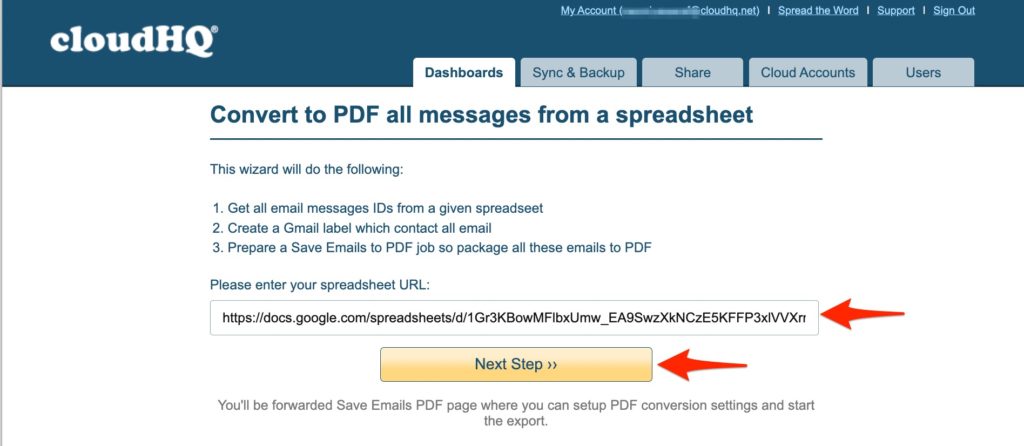
- Now, simply emsure that you select from the drop down menu “Merge all conversations into one PDF” and then click on “Start Save.”
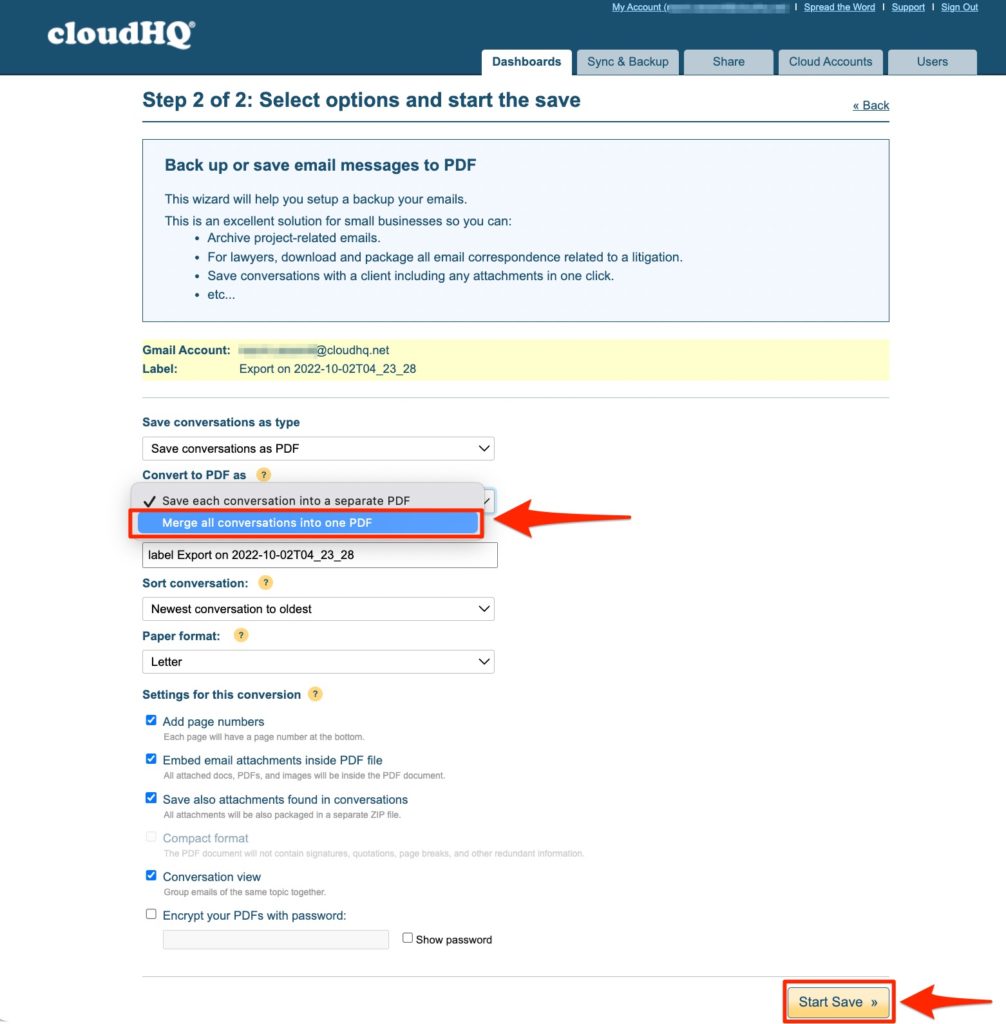
- You’re done! Now the job is running, and you will receive an email when the job is finished running, but you can check it at any time in your cloudHQ dashboard.

Rather than digging through hundreds or thousands of emails, perhaps spanning years, it could obviously take considerable time. So how can you perform e-discovery faster ? cloudHQ’s email parsing is the simple answer.
Email Parsing for e-Discovery Best Practices
By using email parsing best practices, you can save many hours of work while ensuring all of the emails you could use in the e-discovery process in the future are collected ahead of time. This is particularly helpful for small businesses that don’t have the time or staff to muddle through many emails manually to collect evidence.
For example, you can designate not only regular groups of emails but also sub-groups that may pertain to more specific data in the emails you want to bring to a spreadsheet. For example, suppose you’re a manufacturer, and one of the clients you send your products to is Carson Industries. You may have several different kinds of interactions with Carson industries that you want to parse into spreadsheets, such as:
- New orders
- Returns
- Billing
To keep all of these emails properly organized, you can create labels for each type of interaction. Then your support staff can simply apply the label to the corresponding email. For example, you could have labels with names like Carson – New orders, Carson – Returns, Carson – Billing.
Then, whenever an email comes, if you label it according to one of these categories, it’s automatically brought into the spreadsheet of your choice. If for whatever reason, there’s a legal situation in the future, you can just refer to the appropriate spreadsheet to gather the evidence you need.
For instance, if Carson claims they paid a bill, but you know they didn’t, you can pull up the spreadsheet with all of the billing-related emails and produce your evidence in a matter of minutes.
